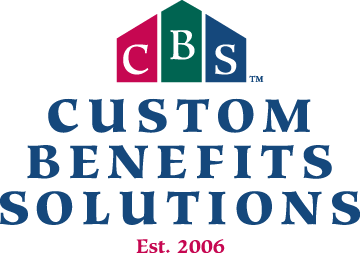Utilize FSA Monies with Key Year–End Strategies
‘Tis the Season’. Like most, you‘re probably in the midst of the “hustle and bustle” of this holiday season with dinners, parties, and activities; Christmas shopping; and spending those remaining FSA dollars you have allocated this year.
Wait, what? Yes, you read right. Chances are, if you’ve opted to utilize an employer-sponsored FSA account in 2017, you may have remaining funds you’ll need to spend. This is especially true if your employer opted for the $500 carryover rule in lieu of a grace period. Regardless of what flexible spending account you have, here are some strategies to get the most out of this benefit before year end.
Medical Care
Medical FSAs are the most common supplemental flexible coverage offered under employer benefit plans. If you’ve elected this coverage for 2017, here are a few things to consider when spending these funds.
Routine and Elective Medical Procedures
Whether routine or not, now’s the time to get appointments booked. If your employer offers a grace period for turning in receipts, you can book appointments into the first couple of months of the New Year and get reimbursed from this year’s funds without affecting 2018’s contributions. This has a two-fold advantage, as you can also spread next year’s deductible over the coming year.
Several routine and elective procedures that are FSA-eligible include:
· Lasik
· Sleep Apnea/Snoring
· Hernia surgery
· Colonoscopy
· Smoking/Weight Loss Cessation Programs
Alternative Therapies
Under IRS law, certain alternative therapies are eligible for reimbursement. Acupuncture and chiropractic care, alternative medicinal treatments, and herbal supplements and remedies are a great way to use up your funds for the year and get a little cash back when you most need it.
Dental
Dental benefits often work differently than medical coverage. According to the American Dental Association, this benefit is often capped annually – generally between $1,000 and $3,000. If you have unused funds remaining in your FSA, now may be the time to schedule a last-minute appointment with your dentist, especially if you might need serious work down the road. This way, you can use up the funds remaining in your account by year-end, and reduce your out-of-pocket expense next year by sharing the cost of additional dental services over a longer period of time.
Prescription Refills
Refilling your prescription medications at year end are a great way to use up your funds in your medical FSA. Take inventory of your prescription drugs, toss out expired ones, and make that call for a refill to your doctor or pharmacy.
Over the Counter Drugs, Medical Equipment and Supplies
Many OTC medications, medical equipment and supplies are eligible for reimbursement under a medical FSA. First-aid kits, blood-pressure monitors, thermometers, and joint braces are just a few. Please note that some will require a note or prescription from your doctor.
Mileage and Other Healthcare-Related Extras
Traveling to and from any medical facility for appointments or treatment are eligible for reimbursement under your FSA. This not only includes traveling by your own vehicle, but also by bus, train, plane, ambulance service; and does include parking fees and tolls.
In addition, you can get reimbursed for other health-related expenses. These include:
· Lodging and meals during a medical event.
· Medical conferences concerning an illness of you or one of your dependents.
· Advance Payments on a retirement home or long-term care.
Dependent Care
If you have opted to contribute to a DCFSA, you can get reimbursed for day care, preschool, summer camps and non-employer sponsored before and after school programs. In addition, funds contributed to this type of FSA can be used for elderly daycare if you’re covering more than 50% your parent’s maintenance costs.
Adoption Assistance
If you are contributing to an Adoption Assistance FSA offered by your employer, you can get reimbursed for any expenses incurred in the process of legally adopting an eligible child. Eligible expenses include adoption fees, attorney fees and court costs, medical expenses for a child prior to being placed for adoption, and related travel costs in association with the adoption process.
Make the most out of your FSA contributions by using the above strategies to your advantage as we close out 2017. As you move into 2018, review the maximum contribution guidelines for the coming year as set by the IRS, and establish a game plan on expenditures next year. Seek your HR department’s expertise for guidelines and tips they can give you to maximize this valuable benefit package.

